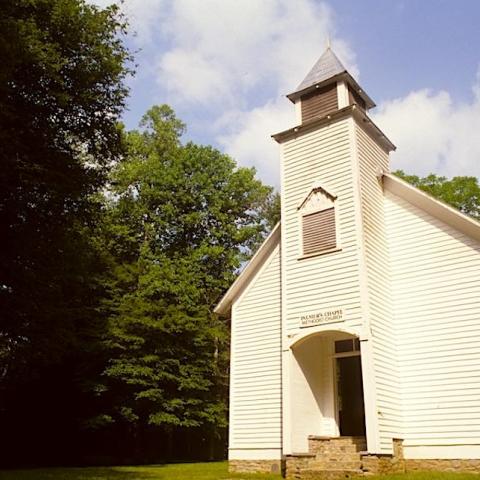
A man who went into Great Smoky Mountains National Park to poach ginseng root (pictured here) might have been killed by a bear/NPS
A black bear believed to have scavenged on the body of a man who went to Great Smoky Mountains National Park to collect ginseng roots was killed Sunday morning by park rangers. Whether the adult boar actually killed the man remained to be determined, park staff said.
William Lee Hill, Jr., 30, of Louisville, Tenn., and a friend had gone into the park near Cades Cove a week ago Friday to hunt for ginseng, a root used by some as a traditional home medicine. Prices can go as high as $800 a pound for ginseng. While the root can be collected outside the park, it is illegal to do so inside the boundaries.
When Hill failed to meet up with his friend, a search was launched last Sunday. The man's body was found Tuesday afternoon in the woods about 2 miles north of Cades Cove and about a half-mile from the Rich Mountain Road.
Searchers who found the body, which had signs of being fed on, saw a bear in the area. It "would not leave the area, and continued to show aggression towards our searchers and others who came in to remove the body," park spokeswoman Julena Campbell said Sunday.
Since it wasn't known whether the bear had killed Hill, the decision was made to place a GPS radio collar on the bear and let it go pending further information, she said. While rangers were putting the collar on the bear, they found evidence of human DNA on it, she said.
On Wednesday, park staff, in discussions with Superintendent Cassius Cash, decided to destroy the bear. However, the GPS collar placed on the animal was programmed to send out location signals every two or three hours, and so it took longer than expected to relocate the bear, said Ms. Campbell.
Additional traps were placed near where Hill's body was found, and while the bear didn't go into any of them, on Sunday morning shortly before 10 a.m. when the traps were checked the bear was seen in the area and was killed, she said.
A necropsy on the bear, which was estimated to weigh about 175 pounds, was planned. Park officials also were awaiting autopsy results on Hill to determine how he died.
"This one’s a complicated case," Ms. Campbell said. "We don’t know what we'll find out.”




 Support Essential Coverage of Essential Places
Support Essential Coverage of Essential Places







Comments
TThst didnt punish the bear for the killing, the bear was put down bc of threat he posed on other humans after eating one
So true. Once a bear shows aggression the Natl Park has to do something about the bear otherwise another person could see death. They do not randomly kill bears just ones they see as dangerous.
man can go and hunt bears but bears cant do the same ppl respect the woods its the little land we left them behind so sad
Remember. When you go into the home where wildlife live, you are no longer at the top of the food chain. Being it woods or water.
Maybe you should live amongst the bears and teach them how to properly interact with their human visitors, then we could all live together in perfect harmony.
This black bear should not have been killed because it was the person's fault for being in there hunting ginseng illegally! This is their territory and people should not feed them and obey the laws, which they don't! This needs to stop!
doing something ilegal is illegal no mater selling dope to feed your family or some root do you believe in making and selling meth that kills thousands every year and everyone that does it will say they were doing it to feed their family people kill people and they don't get a death sentence so why should the bear get a death sentence
I suggest that you make Educating humans as your mission. The bear was destryed since they found human DNA on it. Our National Parks are helping humans understand wildlife and respect it. Going extreme does not help the cause.